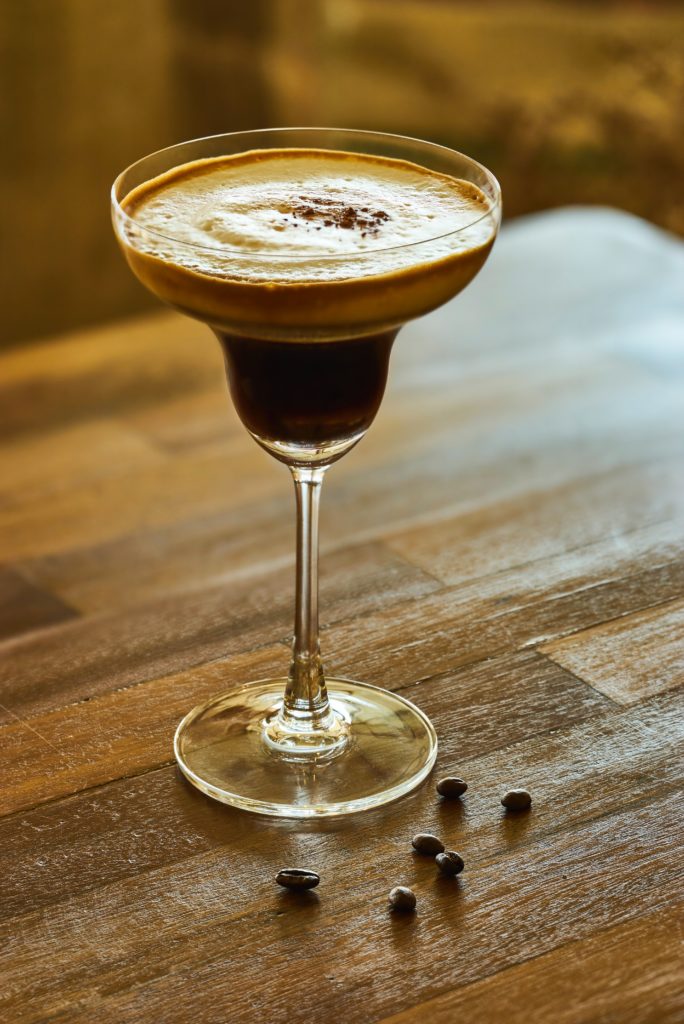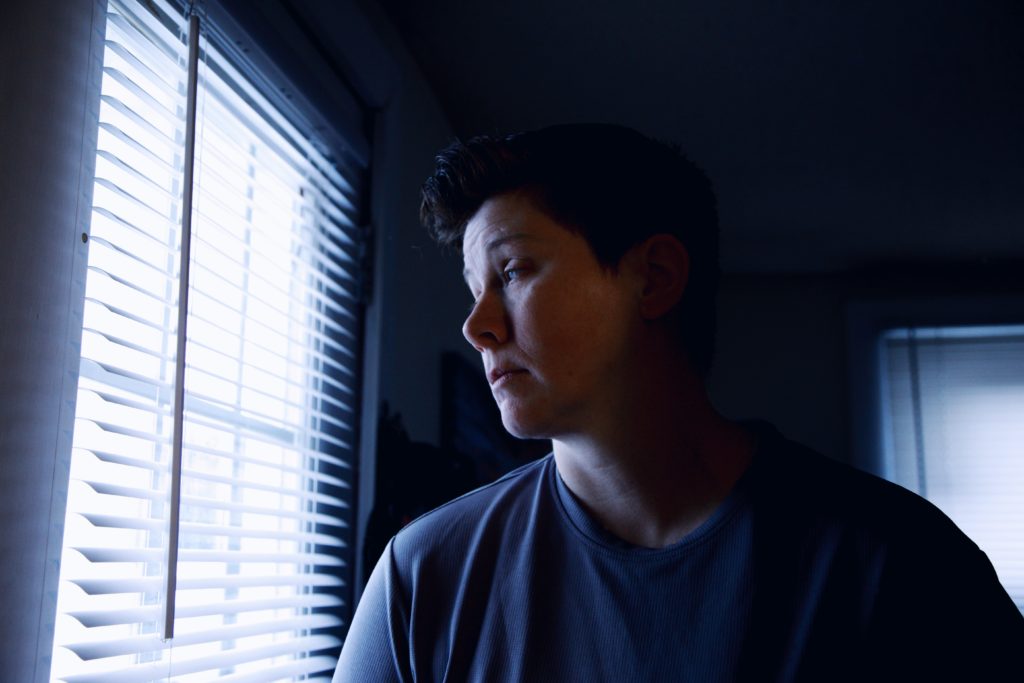There’s more to getting sober than to just stop drinking…

Ever heard someone say, “Oh, she’ll never stop drinking…she’s just weak…” I’m here to tell you there is more to it than just not drinking anymore. And certainly it’s not about being weak or strong. There’s a condition that causes more conditions, and altogether they sabotage a person’s hard efforts to get sober. Abstinence from alcohol, after prolonged heavy use of it, can lead to changes in the brain that trigger other disorders. Gender-related psychiatric conditions like depression, PTSD, anhedonia can be triggered by abstinence. Disorders like these emerge as a result of sudden abstinence, and to maintain abstinence you may need treatment to relieve the other disorders, too.
Meet Leann…
Leann tripped as she skittered down the steps of the theatre. It was a beautiful July night, with a soft breeze on her shoulders. Collie and Jack were soon right beside her by the time she regained her footing.
“You ok Leann? Watch that first step…it’s a doozie!” Everyone snickered at the bad joke.
“Ok,” Jack took over. “Fun play, but let’s focus on our next course of entertainment…”
Collie jumped in. “Let’s do a bar hop!”
Jack joined in. “Ok yes…there’s a great little place at the next corner. We can stop there and decide where to go next!”
All three filed into the pub and found a table. They’d each enjoyed a couple drinks at intermission, but that was an hour ago. Time to recharge. After ordering mojitos all around when the waiter came by, the friends split up to go to the restrooms, and found themselves back at the table just after their drinks were served.
Time was passing fast as they talked and laughed, and after a second round, it was time to move on.
Bar-hopping? Might Lead to Excessive Alcohol Consumption…
The next stop was 4 blocks to the east, so they enjoyed the aromas of downtown restaurants and strolled those blocks in no time.
Then, after a variety of chef-created drinks that seemed to crank up the atmosphere all the more… they staggered out….laughed at their unsteady gait…and crossed the street to a well-known hotel bar.
And 2 margaritas each with limes stuck onto the glasses that were cut to look like little suns surrounded with rays. The girls ordered theirs frozen and Jack requested his on-the-rocks.
It was getting late so they decided to have one more. Leann went for a Bailey’s Irish Cream martini, Collie requested a Godiva smoothie, and Jack ordered 2 fingers of Kentucky Honey neat.

Then they called for a cab and helped each other stagger to the cab at the curb, laughing and snorting every step of the way.
The next morning, Leann and Collie had spent the night in Leann’s apartment, and someone’s cell rang. They both startled awake…then groaned and grabbed their heads.
“Turn off that noise!!“
They were miserable.
Utterly. Heads splitting, stomachs rolling and threatening to erupt.
They looked at each other, and one of them whispered…”it was fun last night…wasn’t it?”
“Oh my gosh, Collie, what were we thinking??? I feel so so sick….” And with that Leann ran to the toilet heaving… and barely got there in time.
After Collie left to go home and nurse her hangover, Leann poured herself a drink, to hopefully make the symptoms milder….
And so it went. That pattern….going out under the guise of “fun”…drinking too much… then waking up sick and drinking more and more every day to feel better.
By Friday, she was ready to start the cycle over again…
(Watch how gender-related psychiatric conditions emerge and threaten her ability to get control in her life…)
But on one of these Friday nights, Leann was with a group she didn’t know that well. When she reached that stumbling down part of the night…someone she barely recognized insisted on driving her home, so she’d be “safe.” Except, he wasn’t about her safety, but about isolating her and taking what he wanted. She landed in a parking lot, her underwear torn off, her clothes filthy from the asphalt…her makeup smeared all over her face.
And deeply humiliated…traumatized…and feeling like a fool.

She got a cab home…then took a shower… and cried.
The next day, after drinking lots of water and tomato juice, she realized she needed to talk to someone she could trust, so she called Jack. She’d known him since high school, and he’d always made her feel safe. And he had a good head on his shoulders.
Sometimes You Need a Reliable Friend
She felt so foolish…but she told Jack through sobs what had happened. He was angry some creep had assaulted her. But they talked about her lifestyle, and that if it didn’t change, she could be hurt again, or worse.
They made a pact that day. They agreed to start spending Friday nights together, without alcohol, and play cards or something, but break this cycle. After spending every Friday and sometimes Saturday this way for the last 3 years… popcorn and vita water was a BIG change.
Well, they played cards and board games all weekend, just as they planned. By Monday, Leann was feeling a bit down. It was neat to do something companionable for a change, and she and Jack had talked and laughed. But still…she felt sort of bummed out.
By the end of the week, Leann was wanting to drink. But she remembered that horrible assault in an asphalt parking lot, and determined to play games with Jack. No matter what.

And that’s what they did. But she was having a hard time caring about the games by now. They decided to watch TV together all weekend, just to stay occupied.
Jack hadn’t imbibed in as much alcohol during the weeks as Leann had, and he was suffering less than she was.
Gender-related Psychiatric Conditions
This “fast” from alcohol was affecting her more intensely than she ever dreamed it would. It was as if her body had become accustomed to it. Like she was in a sort of withdrawal like someone with a drug addiction. She had had no idea this could happen…and the realization shocked her.
Leann’s abstinence, she realized, was not just physically hard, but emotionally hard, too. Was that a thing? She’d never heard of this before. But she was feeling depressed, nervous…and listless. She was jumpy, easily startled.
As her emotions sank, her hope evaporated, and she had little interest in food or sweets. A huge change for her. Eventually, Leann began to think about dying a lot to escape this misery. She just didn’t think she was strong enough to endure much more of the body shakes and aching or the depression and anxiety that had become her constant companions. Either she was going to start drinking again, or she would die.
What else could she do??
…
Treatment for Gender-Related Psychiatric Conditions Can Help Prevent Relapse
Well, interestingly enough, there were options she didn’t know about. Leann’s story is a common one, as teens and young adults learn their limitations with alcohol, and find out they’ve developed disorders through overuse.

Alcohol Use Disorder is a common and costly neuropsychiatric disorder, that robs sufferers of their health and stability. Once this disorder is established, withdrawal from alcohol can result in a wide variety of destructive conditions, such as depression and anxiety. These, in turn, increase the risk of relapse and make it extremely difficult for the sufferer to abstain from alcohol in the long term.
Studies have shown that there are changes in the brain cells that vary by gender. For instance, women are more likely to relapse due to the emotional impairments they experience as a result of abstinence, like depression and anxiety. Men, on the other hand, are more likely to relapse when enjoying the social presence of others who are drinking alcohol.
In the story above, there is no mention of Jack’s history before that night, but if he’d been abstaining, the barhopping with friends was an easy setup for relapse for him. On the other hand, Leann’s depression and anxiety after a couple weeks of abstinence was intensifying her craving to drink, and might have led to relapse for her.
Because gender-related psychiatric conditions determine different changes in brain cells, and therefore different vulnerabilities to relapse.
Her listlessness, her reduced interest in food or sweets… the sudden forced abstinence had triggered anhedonia.
She needed treatment to help her maintain her abstinence. A treatment that would relieve the neuropsychiatric changes that abstinence had triggered. Depression, anhedonia, PTSD, anxiety symptoms….these comorbid conditions threatened to push her to relapse.
So what could she do?
She could reach out for ketamine treatment, that’s effective with each of those comorbid conditions and with alcohol use disorder.
We’ve talked before about how studies have shown that even one ketamine infusion can dramatically reduce alcohol consumption. Also, if you’re female, the comorbid conditions increase the risk of relapse for you.
Since ketamine treatment can be so remarkably effective with these conditions, it’s almost like a firehose extinguishing the fires of these additional symptoms, too. And gender-related psychiatric conditions affect your ability to maintain abstinence but ketamine can prevent relapse.
What can you do if you’re struggling with alcohol use disorder?
Combine abstinence with ketamine treatment. Feel better, engage in life and the things that matter most. Build your career, your relationships, your self respect, and your hope.

There really is a way out of alcohol over use. And a way up to better, more fulfilling living.
If you can identify with Leann’s story, call us.
If you want to control your drinking, and have failed when you tried before, call us.
Independence Day is ahead, and you can be in control of your sobriety before the celebration. You can enjoy the joys of life…and love…without the impairment of excessive drinking. You’re understood and accepted here… we understand how social drinking can sometimes cause changes in your brain structures that lead to a risky lifestyle.
We want to help you achieve the life you want. To enjoy celebrations safely and without impairment. We want you to revel in your wellbeing.

To the restoration of your best self,
